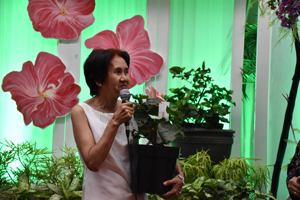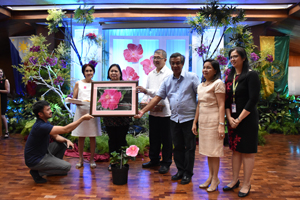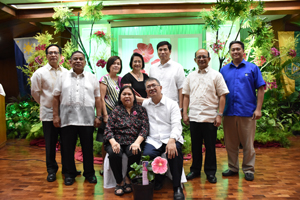
Developed by the Institute of Plant Breeding under the College of Agriculture and Food Science of the University of the Philippines Los Baños (IPB-CAFS, UPLB), Hibiscus rosa-sinensis ‘Mariquit B. de la Peña’ has soft pink rose flowers with delicate white lines radiating from the eye to the middle corolla.
The unveiling of the new hybrid was held during a simple ceremony at IPB-UPLB on February 19, 2019, which coincided on the de la Peña couple’s 40th wedding anniversary.

Being a nurse by profession, Mrs. de la Peña left her promising nursing career in the United States to marry Fortunato. Later on, as their family grew, she decided to take care of her children and husband as a full-time housewife.
Hibiscus rosa-sinensis ‘Mariquit B. de la Peña’ is among the many hybrids developed under the IPB Hibiscus breeding program that started in 1994 by Reynold Pimentel. The program aims to produce new hybrids to enhance their commercial value, improve their status as an ornamental crop, and make them globally competitive.

The day of the unveiling also formally kicked off the Industry Strategic S&T Plan for Ornamentals of the Philippine Council for Agriculture, Aquatic and Natural Resources Research and Development of the DOST (DOST-PCAARRD).
